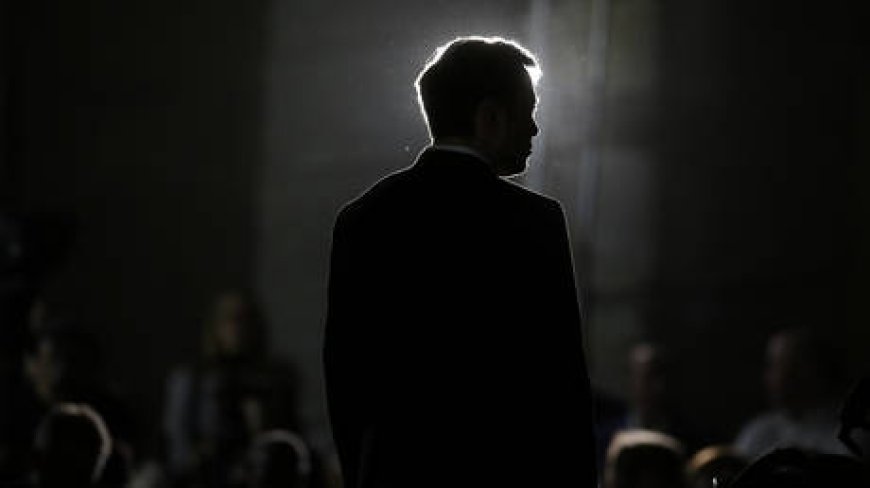Musk’s big bet: Could Germans kick out their liberal elites?
Disillusionment and economic woes are transforming attitudes in the EU’s traditional powerhouse Read Full Article at RT.com

Disillusionment and economic woes are transforming attitudes in the EU’s traditional powerhouse
Donald Trump will soon return to the White House, and Elon Musk – the tech billionaire and serial disruptor – regularly weighs in on European politics from across the Atlantic. Meanwhile, in Germany, public dissatisfaction with the political establishment has reached fever pitch.
As Europe’s largest economy grapples with inflation, high energy costs, and a general sense that “liberal elites” have grown out of touch, more radical parties on both the right and left are seizing the moment. The Alternative for Germany (AfD) is gaining ground almost daily, wooing voters who feel abandoned by the mainstream, while Sahra Wagenknecht, a controversial leftist, is forming a new party that could siphon off working-class support from traditional parties.
With these developments, Germany – once the epitome of stability – now stands on the verge of a political earthquake whose tremors may be felt throughout the European Union.
A major factor behind this upheaval is Germany’s stuttering economy. After decades of relying on relatively cheap Russian gas to fuel its industries and heat its homes, the sudden cut-off has left the country scrambling. Energy bills have skyrocketed, hitting vulnerable households the hardest, and making everyday life more expensive for everyone. Inflation, partially exacerbated by global trends, has eroded purchasing power and confidence in the traditional parties that were expected to safeguard economic prosperity. As factory orders dip and small businesses struggle to stay afloat, voters are growing frustrated – and the AfD has proven adept at channeling that frustration into votes.
But the AfD is not the only beneficiary of this climate of discontent. Wagenknecht, who made her name in the Left Party (Die Linke) before breaking away, is set on pulling disillusioned voters from across the political spectrum. Fiercely critical of deregulated markets and neoliberal orthodoxies, she accuses Germany’s mainstream leaders of abandoning true social justice in favor of what she sees as global corporate interests. For some on the left, who feel the Social Democrats and the Greens have lost touch with working-class realities, her new party offers a tantalizing alternative. By merging left-populist rhetoric with sharp critiques of rising living costs, Wagenknecht might peel away the very voters that kept the center-left afloat for years.
Friedrich Merz, who leads the center-right Christian Democratic Union (CDU) and is often seen as Chancellor Olaf Scholz’s principal rival, faces headwinds from unexpected quarters. Musk’s criticism of Merz has drawn attention to a rift between conventional conservatism and the disruptive style championed by a new generation of influential voices. Worse for Merz, Trump’s return to the presidency in the United States signals that a more populist brand of politics may gain transatlantic support. During his first term, Trump’s ambassador to Germany, Richard Grenell, made headlines by engaging openly with right-leaning German politicians, including members of the AfD. Now, with a second Trump administration, Washington could well encourage a similar or even more robust alignment with populist forces in Berlin.
This newfound enthusiasm for anti-establishment politics also points to a broader pattern across Europe, where trust in traditional parties has been waning. For years, Germany seemed immune to the populist waves that buffeted Italy, France, and other EU states. No longer. Should the AfD continue its ascent – and if Wagenknecht’s party gains real traction – a once-placid two- or three-party system might fracture, making future coalitions messy at best. Already, local and regional elections have hinted at the extent of voter dissatisfaction. On the national stage, that frustration could crystalize into a governing challenge the likes of which Berlin hasn’t seen in decades.
Nor can any of this be separated from Germany’s broader role in Europe. As the bloc’s central economic engine, Germany largely sets the tone for EU policy. A dramatic rightward shift, or even a strong left-populist surge, would ripple through Brussels. Questions of migration, defense policy, and EU fiscal rules might be renegotiated under a less europhile coalition. Countries that share more conservative or nationalist leanings could feel emboldened, while those favoring greater integration or progressive reforms might be sidelined.
In short, Germany’s political shift is a wake-up call to all of Europe: ignoring the grievances of voters on both ends of the spectrum comes at a price. If mainstream elites continue to champion broad liberal agendas without addressing concrete problems – such as ballooning energy bills and the loss of stable employment—more radical alternatives will claim their slice of the political pie. Whether that slice comes from the right, the left, or a combination of both, the result is likely to be a more fragmented, unpredictable Germany. And with Trump soon to be in the White House again and Musk’s disruptive influence seeping into every corner of public discourse, the odds of a return to centrist predictability appear slimmer by the day.


























































